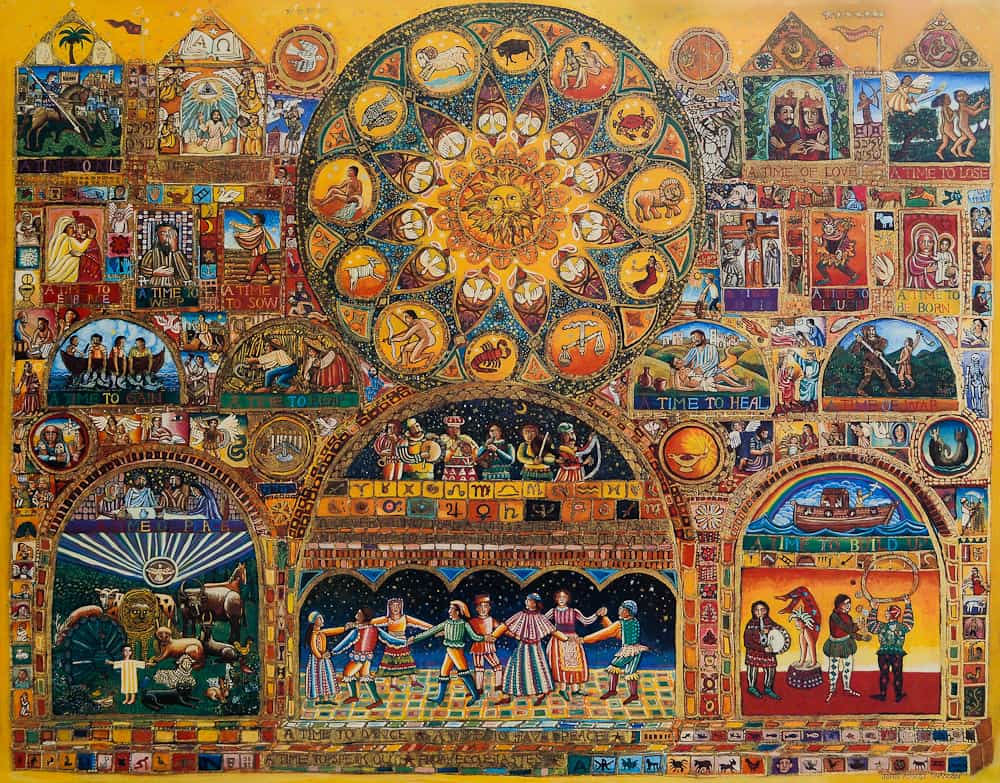
The book of Ecclesiastes
The book of Ecclesiastes is, funnily enough, the furthest you can get from ‘meaningless’ – the most common word people remember from the book.
Ecclesiastes has received bad publicity from modern Bible readers. There are reasons for this. Modern charismatics, quite frankly, generally don’t seem to care too much about anything that is outside of the “devotional” genre (ie. “a nice thought for the day”). To get the deep message and argument from Ecclesiastes, background work is required, which many seem unwilling to do. We are worse off for it.
Ecclesiastes is a masterful apologetic. King Solomon, under a pseudonym ‘Qohelet’ – “Preacher” or “Teacher” in modern translations – is the writer. Some people like apologetics more than others. Apologetics is the task of trying to give a solid defense of the reasons why you believe in something. The Preacher is doing this very activity for us, looking at his life and efforts.
It is helpful to understand that the person ‘under the sun’ is the non-believer in the book. He is the epitome of a person who hasn’t found God and simply lives under the sun and not ‘the son’.
The Preacher is presenting a basic argument which goes along the lines of: “Trust me, I have tried it all. I have given myself to everything there is in this world. I have come to the conclusion that nothing satisfies outside of God. All of life is meaningless and depressing without God in it. Trust me, I have tried. Don’t waste your time. Turn to God now and the fulfilment you are looking for will be yours”.
A brief overview of the argument’s structure may be helpful:
Chapter 1
The preacher jumps right into his material. “It’s all vanity” he says, listing a few examples to back up this statement. Verses 12-18 tells us that he decided to gain as much wisdom as he could to find answers. This failed, according to v.18, because wisdom only leads to more questions.
Chapter 2
The Preacher tells us he tried to solve his meaninglessness in other ways. In Verse 2-11 of this chapter he tells us he gave himself every single pleasure his heart desired, whenever it desired it. Verse 12-17 shows us that both living with wisdom or obeying every passion is a dead end when it comes to actual fulfillment.
In verse 18-26 he considers his hard work in the world. He again becomes disconcerted – it has no meaning. Verse 24 tells us his conclusion on this matter: “enjoyment in work comes only from God”. Can you see his apologetic working itself out?
Chapter 3
Here the Preacher is considering the independence of man. He can’t decide anything in terms of time. Man can’t make anything last, he can’t even control his own life. Man’s life is “dust to dust” he says – only God can make something of it and the coming afterlife.
Then with the same overarching theme in mind, the Preacher continues to argue his case until the end.
Hopefully you can see the purpose of the book. It’s important to note that the book does not discourage us to seek wisdom (that would contradict the book of Proverbs) but is saying that wisdom in itself does not lead to fulfillment. It cannot give life outside of God. If you couple this with the book of Proverbs and Job you find something interesting emerge: God is not some cosmic, impersonal, balancing force (like karma) that we can manipulate through righteousness or wisdom or law or principles of some kind. We cannot treat him that way and he will not be treated that way. While God upholds wisdom and the moral order, he is personal and relational about it. He rewards righteousness but yet we do not justify ourselves before him by our righteousness – rather He justifies us (in Christ) and we live wisdom out because of that. All things are for God to decide and work and only in Him is there fulfillment. Chapter 12:13 sums it up: “The end of the matter: Fear God and keep his ways, this applies to every person”.
Share this with your family and friends by clicking the icon below.
